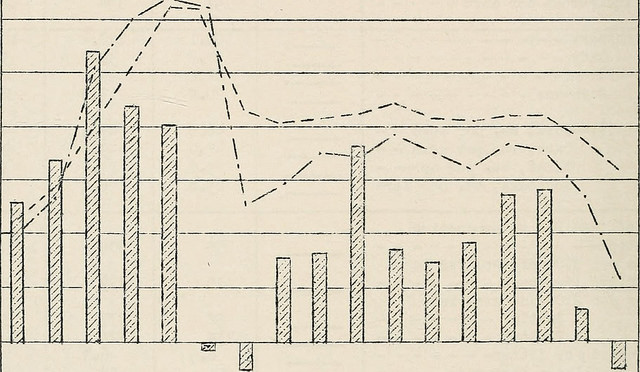Image may be NSFW.
Clik here to view.
The answer is easy: because math is numbers and numbers are measurement and measurements are necessary to make a subject “scientific” in the modern sense of that word. Why should economics be turned into a (modern) science? Because scidolatry, partly.
Our starting point is an article at Aeon “The new astrology: By fetishising mathematical models, economists turned economics into a highly paid pseudoscience” by a fellow named Levinovitz. It is not incidental that he opens with:
…colleges and universities have faced increased pressure to identify essential disciplines, and cut the rest. In 2009, Washington State University announced it would eliminate the department of theatre and dance, the department of community and rural sociology, and the German major — the same year that the University of Louisiana at Lafayette ended its philosophy major…in 2011, the state of Texas announced it would eliminate nearly half of its public undergraduate physics programmes. Even when there’s no downsizing, faculty salaries have been frozen and departmental budgets have shrunk.
Diversity consultants and administrators are doing just fine, incidentally. And what we need “majors” for, anyway? Students at Oberlin want degrees given to them for protesting. Yes really.
Anyway, Levinovitz’s point is academic economists are doing fine—despite any of their theories and Reality being on speaking terms.
Paul Romer of NYU put a paper: “Mathiness in the Theory of Economic Growth“, the abstract of which is pure gold:
Mathiness lets academic politics masquerade as science. Like mathematical theory, mathiness uses a mixture of words and symbols, but instead of making tight links, it leaves ample room for slippage between statements in the languages of words as opposed to symbols, and between statements with theoretical as opposed to empirical content. Because it is difficult to distinguish machines from mathematical theory, the market for lemons tells us that the market for mathematical theory might collapse, leaving only machines as entertainment that is worth little but cheap to produce.
Amen, brother, Amen. Romer told Levinovitz:
‘I’ve come to the position that there should be a stronger bias against the use of math,’ Romer explained to me. ‘If somebody came and said: “Look, I have this Earth-changing insight about economics, but the only way I can express it is by making use of the quirks of the Latin language”, we’d say go to hell, unless they could convince us it was really essential. The burden of proof is on them.’
More: Leviovitz discovered a paper by Stanford’s Paul Pfleiderer, “Chameleons: The Misuse of Theoretical Models in Finance and Economics“. Abstract:
…theoretical models in finance and economics are used in ways that make them “chameleons”…A model becomes a chameleon when it is built on assumptions with dubious connections to the real world but nevertheless has conclusions that are uncritically (or not critically enough) applied to understanding our economy…[I examine] the unfounded argument that models should have equal standing until definitive empirical tests are conducted, and by misplaced appeals to “as-if” arguments, mathematical elegance, subtlety, references to assumptions that are “standard in the literature,” and the need for tractability.
Preach it, baby! Preach it!
Math can be used to good effect in economics, and even in sociology, psychology, and so forth. But it’s like I’ve said precisely 842 1/3 times, when a thing which is essentially unquantifiable is quantified, the quantification is morphed into the thing. The Deadly Sin of Reification strikes! The parts of the thing not quantified are forgotten and dismissed as unimportant. The quantifiable parts swell in importance like Bill Clinton’s ego. Over-certainty necessitates.
Economics, properly understood, is the study of human interactions. And human interactions are only badly and crudely quantifiable. Now at this point counter-examples will occur the economist steeped in the numerical traditions. “What about this model of GDP? What about that model of option pricing?” and so on. But what won’t come to mind any from the greater set of non-numerical examples. Most interactions, most historical events aren’t chartable. They are therefore not amenable to modeling. Therefore they fade into insignificance.
Point in case: “Robert E Lucas Jr writes rhapsodically about the importance of mathematics: ‘Economic theory is mathematical analysis. Everything else is just pictures and talk.'”
Pictures and talk. How childish. Well, since we can’t put an equation to Vladimir Ilyich Ulyanov’s infamous train ride, a highly significant economic change point, then it must not be important. No differential equation to see here! No Dickey-Fuller, no academic purchase.
Let’s give Levinovitz the last word:
For more than a century, the public has been warned, and the way forward is clear. It’s time to stop wasting our money and recognise the high priests for what they really are: gifted social scientists who excel at producing mathematical explanations of economies, but who fail, like astrologers before them, at prophecy.
Update See also the last chapter of my upcoming book, where I discuss quantifying the unquantifiable.